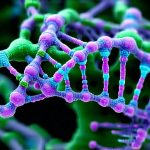Enzymes are the tireless workhorses within our bodies, orchestrating virtually every biochemical process necessary for life – from digesting food and absorbing nutrients to building tissues and detoxifying harmful substances. They’re incredibly sensitive catalysts, meaning they speed up reactions without being consumed in the process themselves. But their efficiency isn’t constant; it can be profoundly impacted by what we consume. Understanding how certain foods interact with enzyme activity is crucial for optimizing digestion, nutrient absorption, and overall well-being. A diet rich in processed foods, excessive sugar, or specific compounds can actively inhibit these vital enzymes, leading to a cascade of health issues ranging from bloating and indigestion to more serious long-term problems.
The key lies in recognizing that food isn’t just fuel; it’s also an active participant in the complex chemistry happening within us. Some foods provide components needed for enzyme function (like vitamins and minerals acting as cofactors), while others actively interfere with their structure or operation. This interference doesn’t necessarily mean avoiding these foods entirely, but rather being mindful of quantity, preparation methods, and overall dietary balance. We need to appreciate the delicate interplay between what we eat and how our bodies utilize it at a fundamental enzymatic level.
Foods Containing Enzyme Inhibitors
Many seemingly innocuous foods contain naturally occurring compounds that can act as enzyme inhibitors. This isn’t inherently bad – plants often produce these substances as defense mechanisms against pests, and some have beneficial properties for us too. However, excessive consumption or improper preparation can lead to issues. One prominent example is found in raw legumes and grains. They contain trypsin inhibitors, which specifically block the activity of trypsin, an enzyme essential for protein digestion in the small intestine. This inhibition reduces our ability to properly break down proteins, potentially leading to digestive discomfort and reduced nutrient absorption. Soaking, sprouting, or thoroughly cooking these foods significantly reduces the levels of these inhibitors. Similarly, certain fruits like papaya contain compounds that can inhibit digestive enzymes if consumed in very large quantities – although paradoxically, papaya also contains an enzyme (papain) known for aiding digestion! It’s a complex relationship illustrating the nuance involved.
Another group of concern is foods high in phytic acid, such as whole grains, nuts, seeds, and legumes. Phytic acid binds to minerals like iron, zinc, calcium, and magnesium, reducing their bioavailability – effectively making them inaccessible for absorption. While not directly inhibiting enzymes, it hinders the process that relies on mineral-dependent enzyme activity. Proper food preparation techniques like soaking, sprouting, or fermenting can help reduce phytic acid content, freeing up these essential minerals. Furthermore, highly processed foods often contain additives and preservatives designed to extend shelf life, but some of these can also interfere with enzymatic processes within our digestive system. Artificial sweeteners are another example – some studies suggest they may disrupt gut bacteria which in turn impacts enzyme production and function.
Finally, it’s important to remember that individual sensitivities play a role. What inhibits enzyme activity for one person might not have the same effect on another. Factors like genetics, gut health, and overall dietary patterns all contribute to how we process food and respond to these inhibitors.
The Role of Goitrogens in Cruciferous Vegetables
Cruciferous vegetables – broccoli, cauliflower, kale, cabbage, Brussels sprouts – are nutritional powerhouses, packed with vitamins, minerals, and antioxidants. However, they also contain goitrogens, compounds that can interfere with thyroid hormone production. This interference happens because goitrogens inhibit the enzyme thyroperoxidase, which is crucial for incorporating iodine into thyroid hormones. While this isn’t necessarily detrimental for individuals with healthy thyroid function who consume adequate iodine, it can be problematic for those with existing thyroid conditions like hypothyroidism or iodine deficiency.
- Cooking cruciferous vegetables significantly reduces their goitrogenic effect.
- Fermenting them (like making sauerkraut) is even more effective at breaking down these compounds.
- Ensuring sufficient iodine intake through diet (seaweed, iodized salt) can help mitigate the impact of goitrogens.
It’s a classic example of how food isn’t simply good or bad; it’s about understanding its complexities and tailoring our consumption to our individual needs. Balance is key – enjoying these nutrient-rich vegetables while taking appropriate steps to minimize potential interference with thyroid function.
The Impact of Alcohol on Pancreatic Enzymes
Alcohol consumption can have a significant impact on pancreatic enzyme activity, particularly when excessive or chronic. The pancreas produces enzymes like amylase (for carbohydrate digestion), lipase (for fat digestion), and protease (for protein digestion). These enzymes are released into the small intestine to break down food. However, alcohol can trigger inflammation of the pancreas (pancreatitis), which impairs its ability to produce and secrete these vital enzymes.
- Acute pancreatitis, often caused by binge drinking or gallstones, can temporarily shut down enzyme production leading to severe digestive issues.
- Chronic alcohol abuse can lead to chronic pancreatitis, progressively damaging the pancreas and reducing its enzymatic capacity over time.
- Reduced pancreatic enzyme activity results in malabsorption of nutrients – particularly fats – leading to symptoms like steatorrhea (fatty stools), weight loss, and vitamin deficiencies.
Even moderate alcohol consumption can subtly affect enzyme function. Limiting or avoiding alcohol is crucial for maintaining healthy pancreatic function and optimal digestion. It’s also important to note that certain medications can exacerbate the effects of alcohol on the pancreas, increasing the risk of pancreatitis.
Sugar’s Interference with Digestive Enzymes
While often overlooked in discussions about enzyme inhibition, excessive sugar intake can indirectly impact digestive enzyme activity. High sugar diets contribute to inflammation throughout the body, including the gut. Chronic inflammation disrupts the delicate balance of the microbiome – the community of bacteria residing in our intestines. This imbalance (dysbiosis) affects the production of enzymes by both our bodies and the beneficial bacteria within us.
- Sugar feeds harmful bacteria in the gut, leading to an overgrowth that can displace beneficial enzyme-producing microbes.
- Refined sugars require less enzymatic breakdown compared to complex carbohydrates, potentially leading to reduced stimulation of digestive enzyme production over time.
- The rapid influx of sugar into the bloodstream triggers insulin spikes, which can further disrupt metabolic processes and impair enzyme function in the long run.
Reducing added sugar intake – focusing on whole, unprocessed foods – is a crucial step towards supporting healthy gut bacteria and optimizing digestive enzyme activity. Prioritizing fiber-rich foods also helps regulate blood sugar levels and promotes a balanced microbiome.
Ultimately, understanding how different foods interact with our enzymatic systems empowers us to make informed dietary choices that support optimal health and well-being. It’s not about demonizing specific foods but rather appreciating their nuances and adapting our consumption based on individual needs and sensitivities.


















